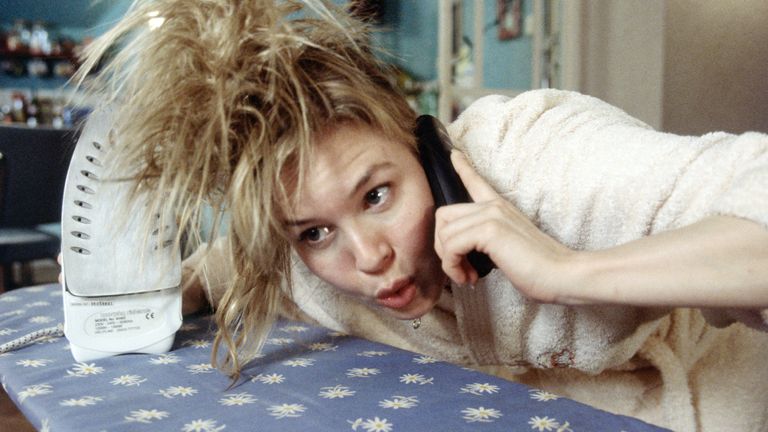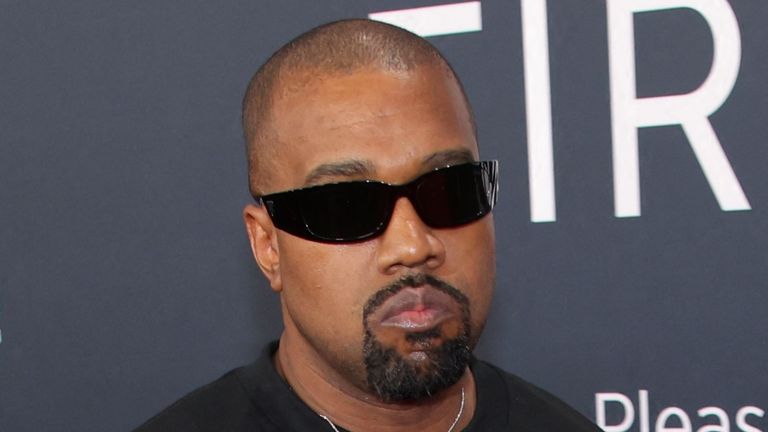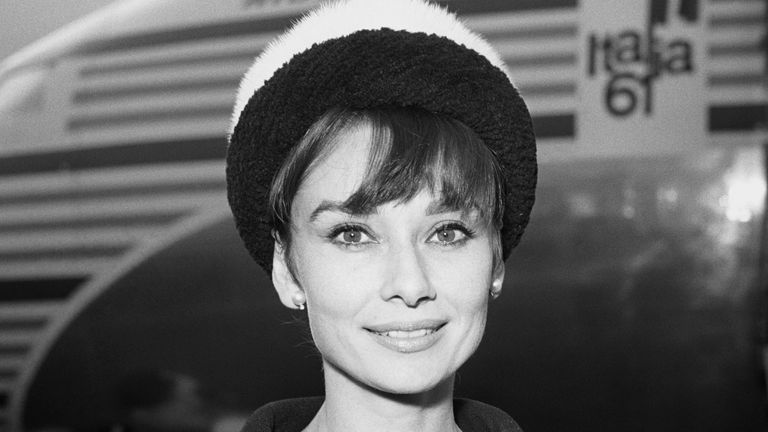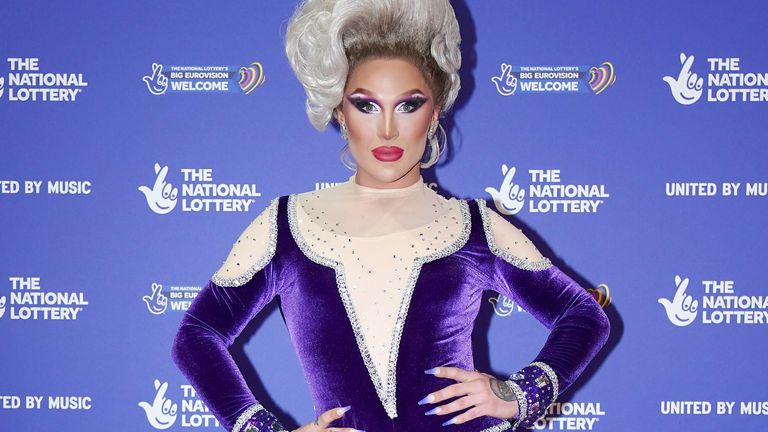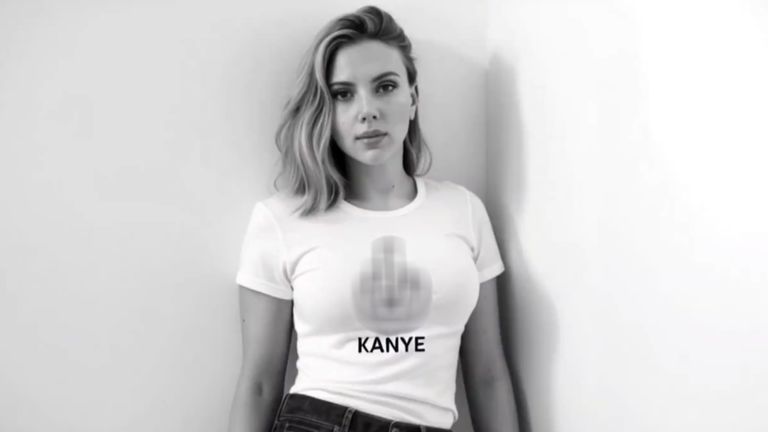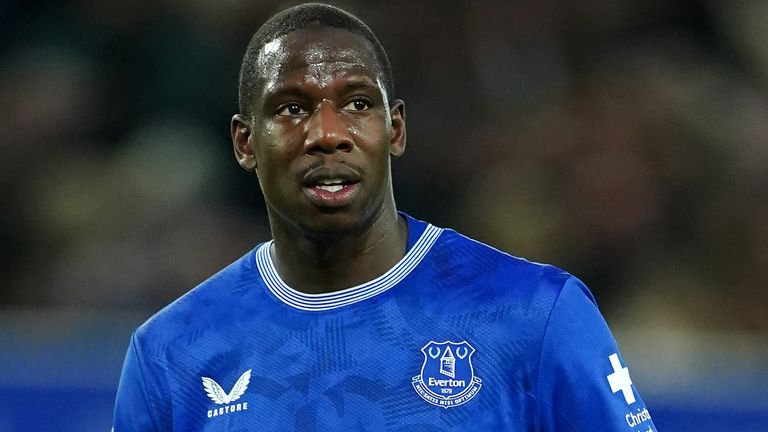A “verbally incontinent spinster, who smokes like a chimney, drinks like a fish and dresses like her mother” – not an auspicious introduction to Bridget Rose Jones, but accurate.
On paper, it doesn’t sound like the dream role, but Renée Zellweger disagrees, telling Sky News: “It’s the best job in the world to step into her shoes for a while”.
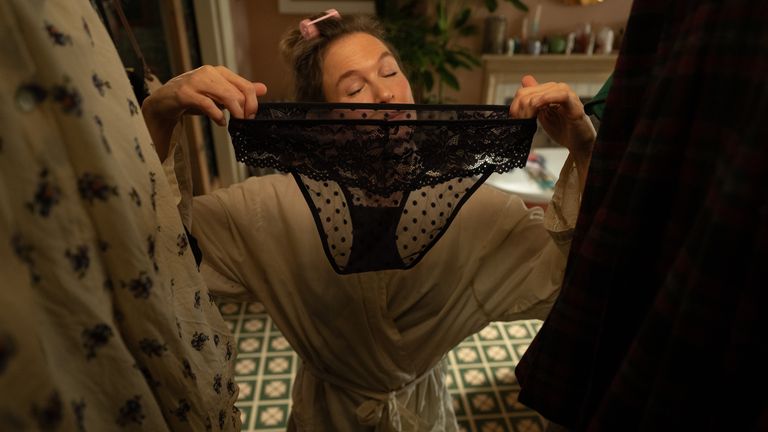
Three decades after the character came to life on the page, and following a trio of earlier films, Zellweger has returned to “this just endearing character” for a fourth movie, Mad About The Boy.
With returning characters including Hugh Grant, Colin Firth and Emma Thompson, new relationships are also introduced, with Leo Woodall and Chiwetel Ejiofor joining the cast.
Zellweger goes on: “I love her. I love her humour. I love her vulnerability. I love her imperfection. I love the opportunity to play out her miscalculating a plan and it maybe, surprising her in her execution. I love all of it.”
The first film earned Zellweger an Oscar nod for her portrayal of Bridget, and the character’s name has gone into the lexicon.
Mad About The Boy director Michael Morris – the first male director to step into the franchise – told Sky News: “When you see Bridget, you realize how many, how few characters there are in film that are just unapologetically human. It’s weird. There should be more…
“She looks the way she looks when she gets up. She’s late for school. She drops things when she shouldn’t drop them. She makes the wrong speech when she needs to give the right speech. And all of those things make you just fall in love with her.”
Read more: Bridget Jones: A heroine of our time or an absolute disgrace?
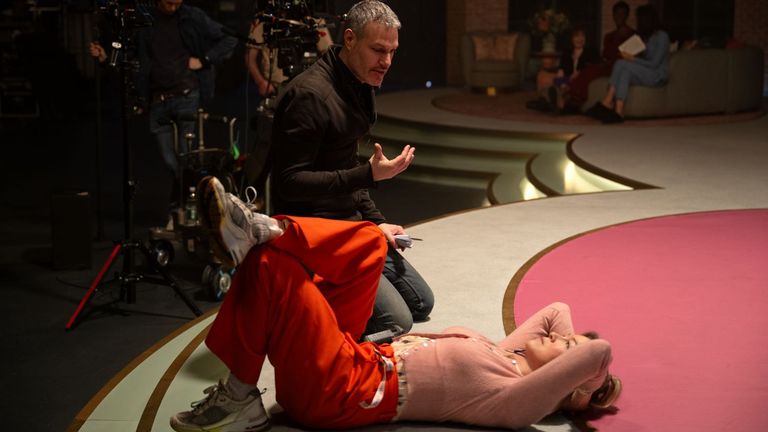
After years of soul-searching, her creator, Helen Fielding, has decided the key to Bridget’s appeal lies in her revealing “the gap between how you feel you are supposed to be and how you really are inside.”
Fielding’s anonymous columns for The Independent, first published in 1995, were a word-of-mouth hit. The four subsequent books were bestsellers.
Produced by Working Title – the production company behind British hits including Four Weddings And A Funeral, Love Actually and Notting Hill – the first film took more than $280m (£225m) worldwide.
Studio bosses will be hoping Mad About The Boy will work a similar magic, and with ticket pre-sales proving bigger than Barbie, it’s looking promising.
Please use Chrome browser for a more accessible video player
Digging down into Bridget’s enduring appeal, Angela McRobbie, Professor of Cultural Studies at Goldsmiths University of London, told Sky News the character’s timely merging of political and popular culture sent out a positive message to young women in the 90s and early 2000s.
“The figure of Bridget Jones, both in writing and then in film represented a new kind of young woman who had been to university, who knew her Jane Austen, and who knew a little bit about feminism.
“There was a sense in which the knowledge of feminism haunted the Bridget Jones phenomena, but in a way that she wanted to discard it and put it in the past.
“She wanted to be feminine. She wanted to be sexy. She wanted to [wear a] Playboy bunny outfit. And in her dream landscape, she imagined a white wedding with lots of kids in the Home Counties. There was a sense in which what the column and then the film did was offered a kind of release from the burden of being feminist”.
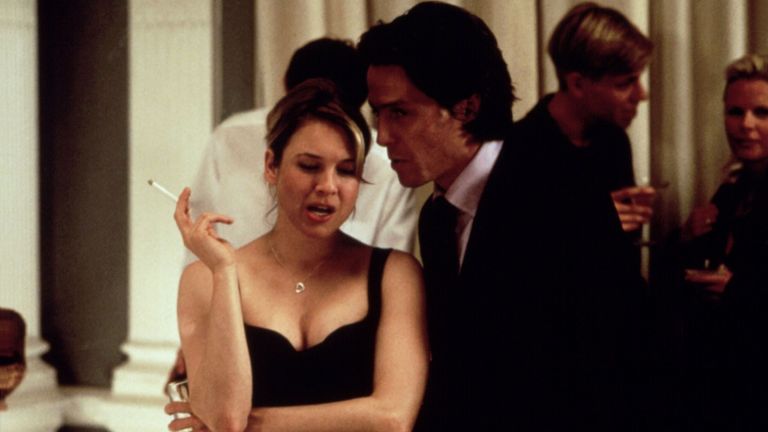
She says Bridget wearing a see-through shirt and miniskirt into the office was her way of saying: “We have to live with sexual inequality, it’s not such a bad thing. I want to be a real girl. I want to enjoy my sexuality if it gets me the attention I want from the boss”.
McRobbie goes on: “In some ways, you could say she was legitimising a kind of sexual inequality in the workplace, but in a fun, light-hearted way.”
Emotional intelligence coach and Bridget Jones fan Miriam Bross told Sky News she can see why Bridget has been described as “feminist Marmite”.
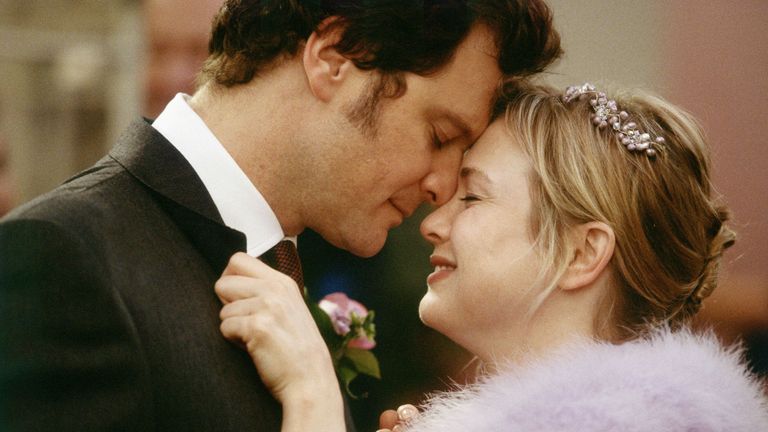
“I think one of the reasons why people react strongly to her is because she was turned into an icon. She was supposed to be the woman of the 90s…
“That’s when you get this polarisation where you feel like you have to either be in favour of Bridget or not. But actually, she’s such a complex character that there’s something for everybody.
“She was this single woman who had fun. Yes, she ends up with a man in the end. But that isn’t the main part. The main part is that she is successful. Even though she makes mistakes, she is a normal weight and is still chased by men.
“Why Bridget still lives on is because she gave people the main message – be yourself and you’re going to be okay.”
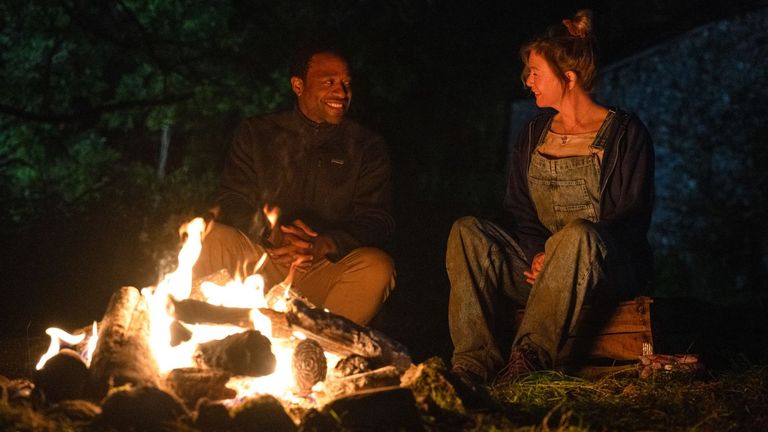
Bross also says that Bridget helped prove that a film focused on the female experience could be as successful as a male-led movie.
“In the 80s, rom coms were all about neurotic men finding love… The female leads in them had very little to say.”
A case in point is Julia Roberts’s actress heroine in Notting Hill – as Bross says – “her silence is so normalised that Ronan Keating wrote the song When You Say Nothing At All celebrating her silence”.
But then in comes Bridget: “She talks. She has voiceovers. We see her thoughts. It’s about her. It’s not just about her and love, it’s about her in her job, we see her working. We see her making mistakes. We see her.”
Bross goes on: “Who doesn’t like to see themselves represented on film? Representation matters very much. And here was this flawed woman who got the guy in the end.”
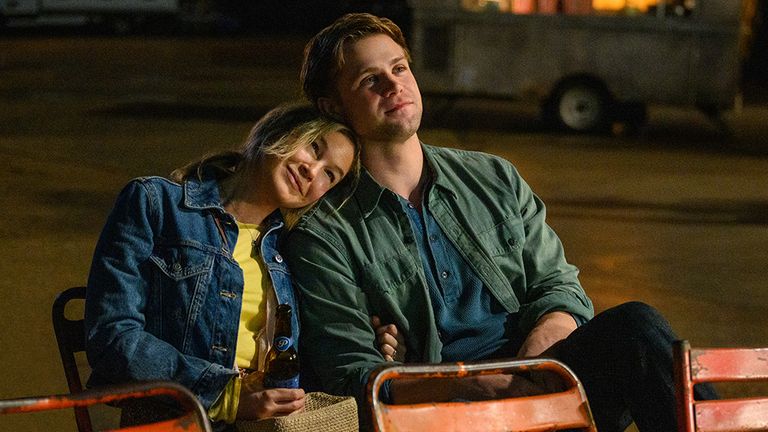
Both McRobbie and Bross say they will be watching Mad About The Boy.
But is it the same old Bridget we’ll see in the new film? With a very different tone to previous instalments, can fans look forward to the dollop of nostalgia they’re likely craving?
As McRobbie rightly notes, the experience of the Gen Z audience watching the movie today is very different to that of their predecessors.
“It’s a much tougher world than it was certainly in the early 2000s and even in the second film. Young women have to deal with toxic masculinity, and they have to navigate their way through sexuality and they’re much more aware of sexual violence.”
It begs the question, will Bridget have the same appeal in 2025 as she did in 2001?
Bross says she still has much to offer: “This character is like an old friend. So even if she’s not entirely up to date, you will still love her…
“When people are stressed, when they’re anxious, they turn to the familiar. People do need something soothing. They need narratives that help them calm down in stressful times.”
Meanwhile, Zellweger promises Bridget will still exhibit all the qualities that have made her beloved worldwide.
“I think it’s just a continuation of these authentic representations of a person’s experience and different life chapters.
“It feels like the essence of the person is the same and her very familiar optimism, her vulnerability and her sweetness and her humour, all that’s the same.”
Bridget Jones: Mad About The Boy is in cinemas now.

